The Power of Transparency and Traceability
Welcome to our mission for a more sustainable future! We believe that the food and drink industry is over encumbered with outdated business models that simply don’t meet the demands of today’s conscious consumers. We believe that, with change comes opportunity, and that transparency and traceability are key to creating a better, more sustainable future.
With ever frequent scandals (such as horsemeat burgers, fake manuka honey, and the damaging effects of monoculture farming), being able to provide total transparency to customers ensures that businesses understand the social and
environmental impacts of their supply-chains.
Our Commitment to Transparency and Traceability
At Glass, we’re committed to being part of the solution. By prioritising transparency and traceability in our business model, we believe that we can help create a more ethical and sustainable food and drink industry that truly aligns with the values of today’s consumers. Change isn’t easy, but it’s necessary for a better tomorrow. That’s why we’re investing in a radically sustainable business model that prioritises transparency and traceability at every step of the process. We believe that by being open and honest about our sourcing practices, we can build trust with our customers and partners.
We share your concerns about the social and environmental impact of the food and drink industry. That’s why we’re committed to creating a more sustainable future by solely working with traceable products, even if it means added effort and costs. We believe that through leading by example, we can inspire others to join us on this journey towards a more sustainable future.
True Costs of Sustainability
However, creating a more sustainable future comes at a cost, and we believe that it’s important to be transparent about those costs.
The illustration below outlines how our ingredient costs differ from those conventionally used by coffee shops and bakeries. There are also many other costs that we can’t easily account for—such as the time and effort we invest in searching for traceable ingredients and product development—but we believe that you deserve to know what goes into making the ethical products you love.

It may come as a surprise that traceability in food and drink ingredients is not as widespread as expected. Many consumers assume that the ingredients used in the products they purchase are carefully monitored and tracked, but in reality, this is not always the case.
For example, with Ethiopian coffee, although a coffee bag may label its region of origin (and therefore suggest a significant degree of traceability), understanding the coffee’s provenance beyond that is often impossible. Individual farmers bring their coffee to local processing facilities where it is mixed with other coffees before being sold for export. Consequently, there is no real understanding of who grew this coffee, what their farming practices are, and whether they were paid a fair price.
Similarly, and even more concerning is the fact that most companies are unaware of the social and environmental impact of the ingredients they use. This lack of awareness can have significant consequences, as certain ingredients may be linked to labour exploitation, environmental degradation, or other harmful practices.
At Glass, we strongly believe that sustainability begins with transparency. It is crucial that companies understand the origin of their ingredients to establish traceability and promote transparency and accountability in the food and drink industry. Moreover, if a company is labelling itself as sustainable and ethical, it is essential that they know where their ingredients are coming from. Without this knowledge, it would be difficult for the company to ensure that its practices align with its claims of sustainability and ethics. We do not believe that most businesses knowingly act unethically, however, the opacity inherent in conventional supply chains makes it near impossible for many to guarantee their claims currently. By prioritising transparency and traceability in their supply chains, companies can take the necessary steps to promote social and environmental sustainability in their operations.







